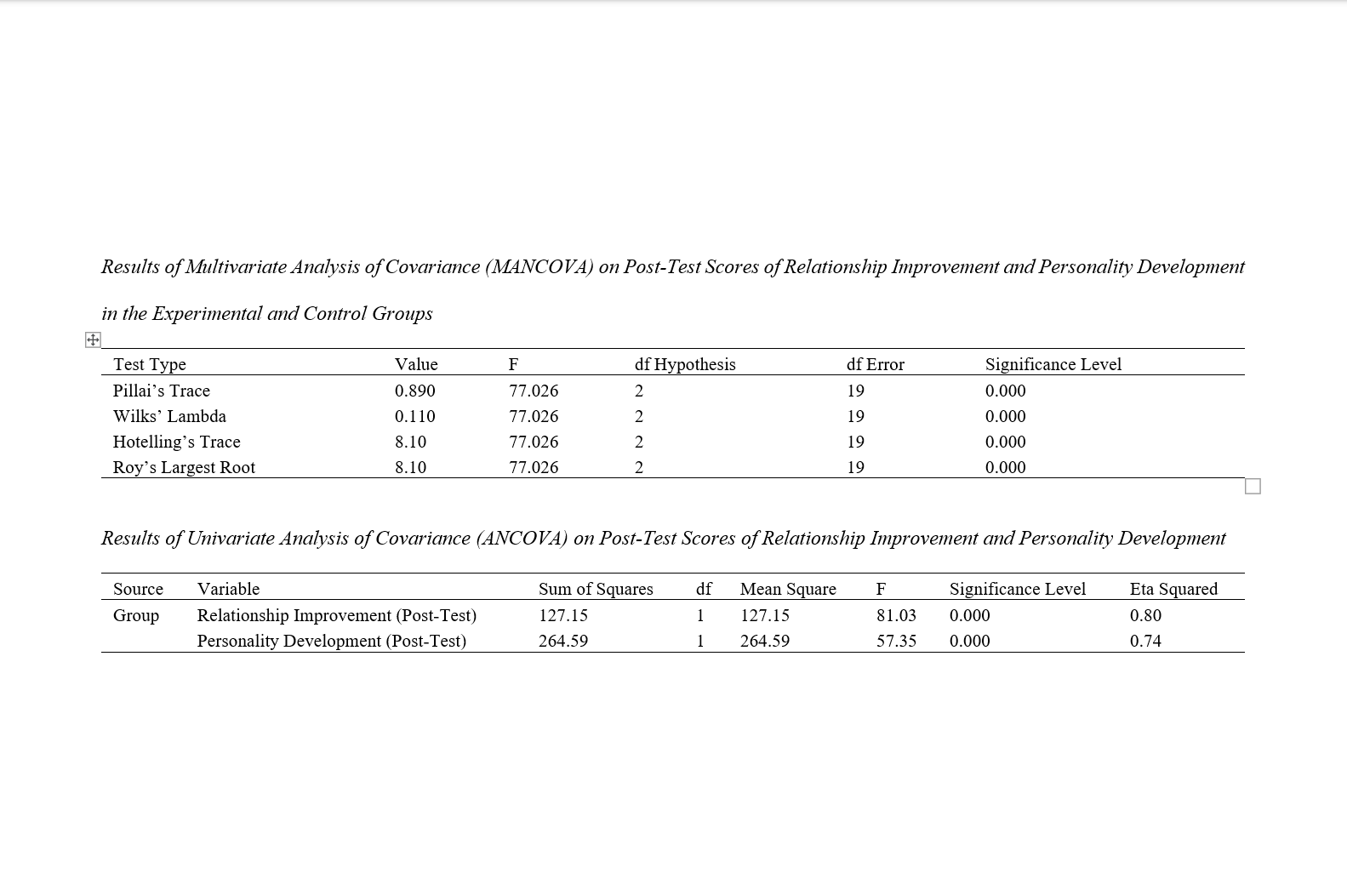The Effectiveness of Religious Spirituality Training in Improving Interpersonal Relationships and Personality Development
Keywords:
Religious spirituality, interpersonal relationships, personality developmentAbstract
Objective: The present study aims to examine the effectiveness of "Religious Spirituality" training in improving interpersonal relationships and personality development.
Methods and Materials: The research method employed was an experimental design with a pre-test and post-test and a control group. The target population consisted of male high school students in the second stage of secondary education from one of the high schools in District 2 of Kerman, who were in the 11th grade and aged 17–18 during the 2024–2025 academic year. From this population, a sample of 24 students who scored low on the Relationship Quality Questionnaire was selected. After obtaining their consent to participate in the study, they were randomly assigned to either the experimental group (n=12) or the control group (n=12). The experimental group received nine 90-minute sessions of spirituality training based on the teachings of Islam, following the book Psychotherapy and Spirituality (Wiesgatt, 2008) and the spiritual interventions of Richards and Bergin (2005), while the control group did not receive any training. For data analysis, descriptive and inferential statistics (analysis of covariance) were applied using SPSS-26 software. The research data were collected using the Relationship Quality Questionnaire (Pierce et al., 1991) and the Gray-Wilson Personality Questionnaire (GWPQ).
Findings: The results indicated a significant difference between the experimental and control groups in the variable of relationship improvement (F=81.03, P=0.000) and the variable of personality development (F=91.01, P=0.000).
Conclusion: The findings suggest that "Religious Spirituality" training significantly enhances interpersonal relationships and personality development. Integrating spirituality into education can foster self-awareness, resilience, and prosocial behaviors, emphasizing the need for further research in diverse populations.
Downloads

Downloads
Additional Files
Published
Submitted
Revised
Accepted
Issue
Section
License
Copyright (c) 2025 Mahdi Taghavi Rafsanjani (Corresponding Author)

This work is licensed under a Creative Commons Attribution-NonCommercial 4.0 International License.








